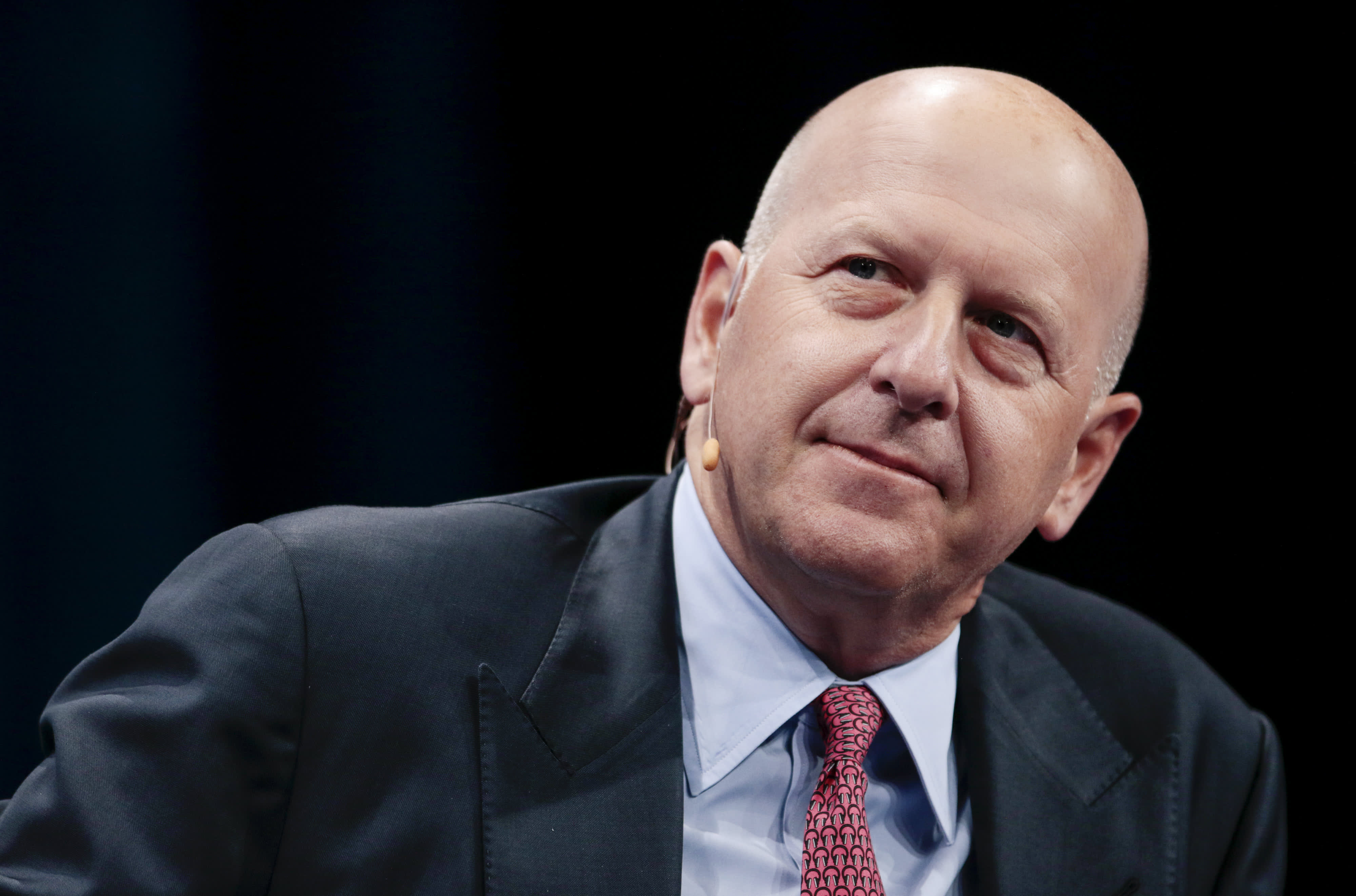Goldman Sachs is getting into the cloud computing business.
The bank is opening up access to its trove of market data and software tools to hedge funds and asset managers in an offering designed with Amazon‘s cloud division, CNBC has learned exclusively.
The move, the result of a two-year collaboration with AWS, puts 152-year-old Goldman in the unusual position of being a provider of cloud services for Wall Street, according to executives at the two firms. It’s part of Goldman CEO David Solomon‘s push to use technology to better serve clients of the firm’s markets division, a trading juggernaut that has helped drive the firm’s results this year.
“Clients of the firm will get access to our decades of experience and data aggregation that should enable them to enhance their business decisions, both from a speed and efficiency perspective,” Solomon told CNBC last week in a phone interview. “We think that adds to our position as a leader in the marketplace.”
The new service, called GS Financial Cloud for Data with Amazon Web Services, will help asset managers save time by allowing their developers to focus efforts on trades, rather than spending time wrangling data sets and leaning on a patchwork of legacy software to analyze them, the companies said. It will also “lower the barriers to entry” for firms to use advanced quantitative trading techniques, Goldman said.
The industry is struggling to keep up with the rising technological demands of the latest investment techniques, according to Goldman co-chief information officer Marco Argenti. The last decade has seen the rise of quantitative trading firms, which have soaked up assets while traditional hedge fund managers including John Paulson and Leon Cooperman have closed to outside investors.
A hedge fund client who wanted to chart the correlation between a stock and currency exchange rates, for instance, could take months to assemble and clean the data and perform calculations with it, said Argenti. Instead, by building applications atop data feeds and analytic tools that Goldman itself uses, the analysis can be done in minutes, he said.
“If this existed we would’ve used it, but we had to build it for ourselves because there really is nothing like this in the market,” Argenti said. “All you need to do is assemble the interface and integrate it with your application and then everything else is kind of taken care of for you.”
‘Working backwards’
The product, which was unveiled Tuesday at the AWS re:Invent conference in Las Vegas, is the latest sign of the unusually close ties between the tech giant and the leading Wall Street firm.
That relationship began more than a decade ago when Goldman began to port over parts of its computing workload to the cloud, according to Adam Selipsky, who rejoined Amazon as head of AWS earlier this year.
It’s been a fruitful relationship: Goldman leaned on AWS to quickly build its Marcus consumer finance business in 2016 and its Apple Card operations three years later. Meanwhile, Goldman extends loans to Amazon merchants and advised Amazon on its 2017 acquisition of Whole Foods.
In discussions between the two firms, Goldman was keen to understand how Amazon took computing services it had initially created for itself and turned it into AWS, said Selipsky. (Goldman developers referred to the effort as Project Alexandria, according to the companies.) One technique Amazon taught Goldman was a concept called “working backwards,” in which the tech giant writes a press release and FAQ before starting a project to convince managers of its importance, he said.
“We have a lot of customers who ask us to help them do what Amazon did with AWS,” Selipsky said in a phone interview. “When we started talking about Goldman’s capabilities around data and around analytics in the financial services realm, the ideas just sprang up pretty rapidly about collaborating together.”
Amazon pioneered the cloud computing category, which allows companies to rent computing power and a suite of services instead of operating their own fields of servers. That has allowed companies to speed up software cycles, helping them stay on top of evolving consumer demands. AWS now accounts for the lion’s share of Amazon’s operating profit.
‘Explosively beneficial’
In recent years, Amazon has partnered with leaders across sectors to build out industry-specific cloud services in areas including manufacturing, health and life sciences. For instance, Amazon is working with Volkswagen to create an industrial cloud platform to help it move 124 factories to a single software platform.
“If you take a step back, Goldman is not only a bank or a financial services provider, it’s now also a software company,” Selipsky said. “We’ve been a software company for a number of years, figuring out how to expose the powerful capabilities that Amazon has in a way that is explosively beneficial to customers.”
The executives declined to give details about how Goldman and AWS would share revenue from the joint project, but Solomon told CNBC that he saw it as a way to further entrench the firm with trading clients. Goldman plans to monetize the service through the trading and financing opportunities that it will generate, he said.
“This is something that enhances the experience of our institutional clients and gives them access to our data and information,” Solomon said. “The way we get paid for that is we get more of their wallet share because the overall experience and services we provide gives us more mindshare, more opportunities to trade with them, to finance them and do things like that.”
